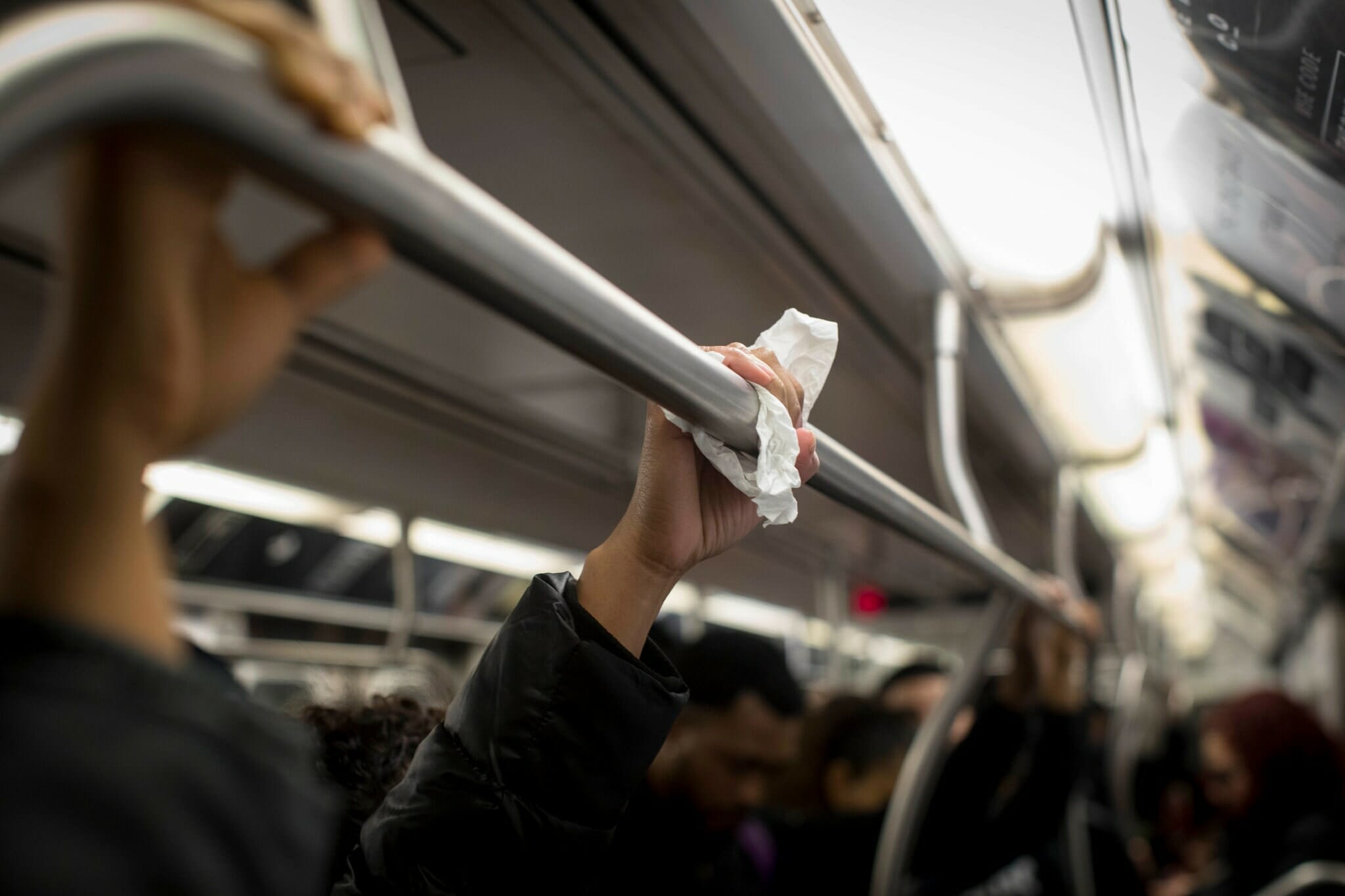Will increased cleaning of trains and cabs make a difference?
Eleven cases of the new coronavirus have been reported in New York as of March 5. Of those, nine are being attributed to a single person who had not traveled anywhere with widespread transmission of the virus, but had commuted from Westchester to New York City via Metro-North Railroad daily in the days leading up to his contracting the coronavirus. While New York public health officials continue to investigate just how the man contracted coronavirus, they have issued warnings regarding the ease with which the virus can be spread and suggestions regarding avoiding coronavirus. Those who contracted the virus from the man include his neighbor. The neighbor had given the man a ride to seek medical attention when he had first become ill.
According to a recent New York Times report, epidemiologists say the risk of transmitting the virus is difficult to accurately assess. Public transportation systems nationwide have reported increased cleaning regimens for their equipment and stations, but it’s not clear how effective these practices can be in fighting a virus that apparently can be readily passed between shoulder-to-shoulder passengers on a crowded rush-hour subway or railroad car.
Ride-hailing companies say they have issued recommendations to gig workers regarding the cleanliness of their vehicles and have instructed them to not work if they are sick. But compliance with these recommendations is purely voluntary. And according to a 2019 study by the auto insurer Netquote, the average rideshare vehicle has about 219 times as many germs as the average taxi, which even prior to the coronavirus breakout would be cleaned on a regular basis.
Master of Your Domain
Sometimes the best bet is to take matters into one’s own hands. While the current COVID-19 outbreak has not led to limits in mass transit systems, the accessibility of ridesharing apps or the ability to hail a cab on the street, using one’s own vehicle, keeping it clean, and even using one of a handful of automotive cleaning products that claim to inactivate germs in a closed environment like an automobile may be the safest way to travel, at least locally.
According to CNET, one such cleaning product is the SafeSpace Disinfectant and Deodorizing Germ Fogger, which claims to kill coronaviruses and noroviruses. However, much like hand sanitizers and anti-bacterial wipes at the local Wal-Mart, the SafeSpace product is currently out of stock on Amazon. But there are more accessible products that are effective in avoiding coronavirus contact.
Lacking access to a specific product, experts suggest that simply cleaning car surface areas, door handles, seat belt latches and air vents with any bleach-based cleaning solution regularly can effectively disinfect these surfaces and help avoid the spread of germs.
Of course, traveling in your own car, and taking steps to keep it germ-free zone, is one way of avoiding coronavirus. But, just like the good neighbor in Westchester who drove his friend to the hospital – only to contract COVID-19 himself – how does one minimize risks when traveling with others in the car? According to William McManus, president of Safe Ride Corp., knowledge and prevention go a long way.
Using Safe Ride Corp., where you can avoid crowded mass transportation and ride in your own car, there is the added comfort of being driven by a recently retired Police Officer who has experience working in the New York Metropolitan area. Certainly, if there are people who know how to minimize the risk of what can be encountered in daily life in New York City, they do.
“Safe Ride is fortunate to have a responsible team of retired First Responders who are fully aware of the importance of heeding the warnings and washing hands frequently,” says McManus, who adds that the entire Safe Ride Corp. team of drivers has been briefed on specific protocols to be followed amid the coronavirus scare. And while many Safe Ride clients enjoy working with the same driver when they use the service regularly, the company takes these protocols seriously and readily assigns a substitute driver for any member of the team should they notice they are feeling under the weather, particularly during cold and flu season. “The name of the game is prevention,” McManus says. “Take steps before a problem arises.”
Photo: Dave Sanders | New York Times

